
Most people think of hepatitis as something that lasts forever-something you get from needles or risky sex and never shake off. But hepatitis A is different. It doesn’t stick around. It doesn’t turn chronic. It doesn’t scar your liver. It hits hard, makes you feel awful for weeks, and then, if you’re lucky, it just goes away. The problem? You can catch it from a handshake, a salad, or even a bathroom door handle. And if you don’t know the signs, you might think it’s just a bad stomach bug.
How Hepatitis A Spreads - It’s Not What You Think
Hepatitis A isn’t spread through blood or sex like hepatitis B or C. It’s spread through poop. Yes, really. The virus lives in the stool of an infected person and gets into your mouth when you touch something contaminated and then eat or touch your face. It’s that simple. And it’s that sneaky.You can catch it from:
- Food or water handled by someone who didn’t wash their hands after using the bathroom
- Raw shellfish from polluted water
- Close contact with an infected person - like living in the same house or caring for a sick child
- Traveling to places with poor sanitation - even if you’re careful about what you eat
The virus doesn’t need much to survive. It can live on surfaces for weeks. It’s resistant to heat, cold, and even some cleaning products. Only bleach (5-10 tablespoons per gallon of water) kills it quickly. Soap and water help, but only if you scrub for at least 20 seconds - the time it takes to sing "Happy Birthday" twice.
What Happens After You Get Infected
You won’t feel sick right away. There’s a gap - usually about 28 days - between when you’re exposed and when symptoms show up. That’s called the incubation period, and it ranges from 15 to 50 days. During that time, you’re already spreading the virus, even if you feel fine.Here’s the scary part: the most infectious time is before you even know you’re sick. Two weeks before jaundice (yellow skin or eyes) shows up, the virus is pouring out of your stool. That’s why outbreaks happen in restaurants, daycares, and nursing homes - people are contagious before they look ill.
Symptoms: More Than Just a Stomach Bug
Symptoms hit fast and hard. They don’t creep in. One day you’re fine; the next, you’re exhausted, nauseous, and confused. Common signs include:- Jaundice (yellow skin or eyes) - happens in 70-80% of adults
- Dark urine - reported by nearly 9 out of 10 people
- Clay-colored stools - your poop turns pale because your liver isn’t processing bile
- Extreme fatigue - 9 out of 10 people feel this, and it’s often the worst part
- Loss of appetite - you might lose interest in food for weeks
- Nausea, vomiting, abdominal pain - feels like food poisoning, but worse and longer
- Fever - usually mild, around 100-102°F
- Joint pain - less common, but real
Here’s the twist: kids under 6 usually don’t show symptoms. They might run around like nothing happened, but they’re still spreading the virus. That’s why outbreaks in daycares are so common - parents don’t realize their child is sick until someone else gets ill.
How Long Does Hepatitis A Last?
Most people think recovery means feeling better. But with hepatitis A, recovery has stages.Weeks 1-4: This is the worst. You’re tired, nauseous, maybe jaundiced. You might be hospitalized if you can’t keep fluids down. About 10-20% of adults need medical care for dehydration.
Weeks 5-8: Symptoms start to fade. Jaundice fades. Appetite returns. But fatigue? That lingers. Studies show 82% of adults still feel exhausted at 6 weeks. One Reddit user wrote: “I thought I was fine at 4 weeks. Then I tried to walk to the mailbox - collapsed. Took another 3 weeks to get back up.”
Weeks 9-12: Liver enzymes return to normal for 80% of people. You can go back to work, exercise, eat normally.
Months 4-6: The last 15% of people finally feel like themselves again. About 10-15% of adults - especially those over 50 - have relapses. They feel better, then crash again for a week or two. It’s not a new infection. It’s your body still cleaning up.
Complete recovery? 95% of people are fully back to normal within 6 months. No permanent damage. No cirrhosis. No lifelong treatment.
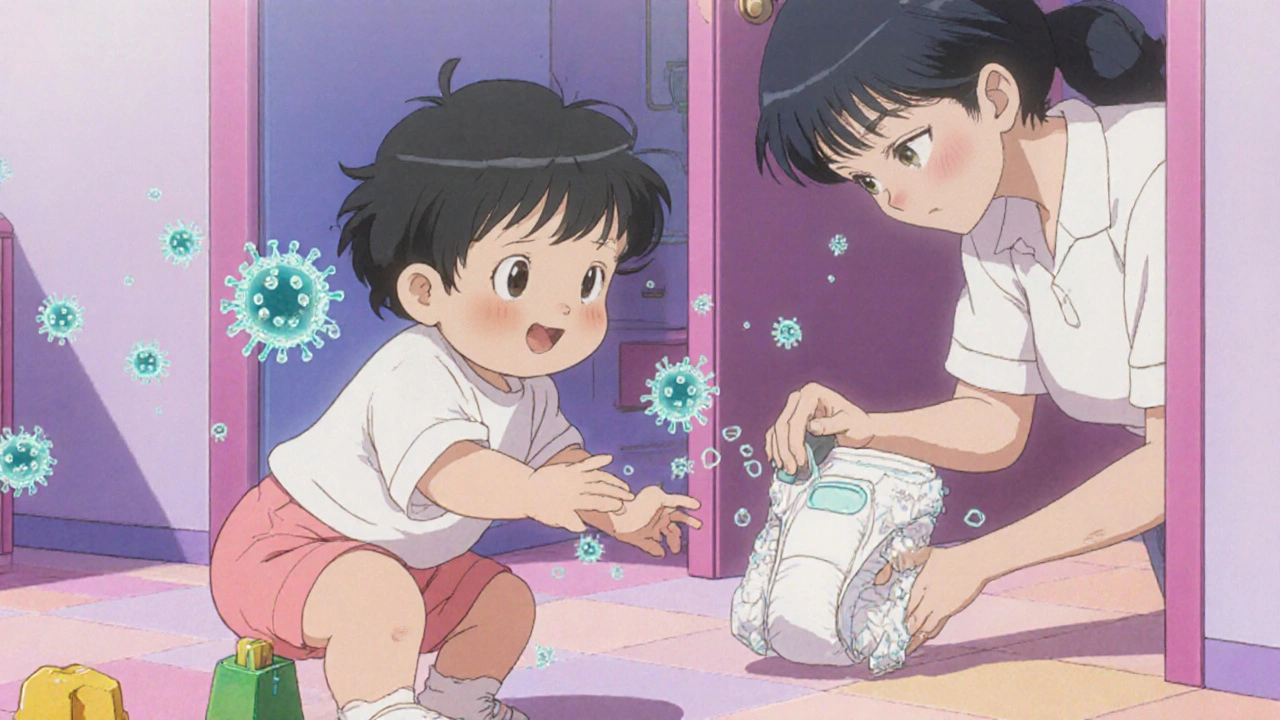
Recovery Tips: What Actually Helps
There’s no cure for hepatitis A. Your immune system handles it. But you can help it along:- Rest - don’t push yourself. Even light activity like walking can help, but only if you don’t feel dizzy.
- Hydrate - water, broth, electrolyte drinks. Vomiting and fever drain you fast.
- Eat small, low-fat meals - your liver is struggling. Avoid greasy food, fried stuff, heavy sauces. Stick to rice, toast, bananas, broth. Aim for 1,800-2,200 calories a day to keep your body from breaking down muscle.
- Avoid alcohol completely - even one drink can delay healing. Wait until your doctor says your liver enzymes are normal.
- Skip acetaminophen (Tylenol) - more than 2,000 mg a day can hurt your liver when it’s already stressed. Use ibuprofen instead, if you need pain relief.
Most people (75%) don’t need medicine. Just time, rest, and water. But if you’re over 50, have another liver disease, or can’t keep fluids down - see a doctor. Rarely, hepatitis A causes acute liver failure. It’s uncommon, but it happens.
How to Prevent It - Before You Get Sick
The best way to avoid hepatitis A? Get vaccinated. The vaccine is 95% effective after one dose and nearly 100% after the second. It’s given in two shots, 6 to 18 months apart. You’re protected within 4 weeks of the first shot.The CDC recommends the vaccine for:
- All children at age 1 (12-23 months)
- Travelers to countries with high rates of hepatitis A
- People who use drugs
- Men who have sex with men
- People with chronic liver disease
- Homeless individuals
- Anyone who wants protection
It’s not just for kids. Adults over 50 are at higher risk of severe illness. If you’re planning a trip to Mexico, Thailand, or even a local food festival - get the shot.
Post-exposure? If you’ve been near someone with hepatitis A - like a roommate or coworker - you can still prevent infection. Get the vaccine or immune globulin within 2 weeks of exposure. It works 85-90% of the time.
Handwashing is your second line of defense. Wash with soap and water for 20 seconds after using the bathroom, before eating, and after changing diapers. Alcohol-based hand sanitizers? They don’t kill hepatitis A. Only soap and water work.
What About Food and Travel?
Foodborne outbreaks are rising. In 2022, the FDA tracked 17 outbreaks linked to contaminated produce - mostly from workers who didn’t wash their hands. Strawberries, green onions, and frozen berries were common culprits.If you’re traveling:
- Drink bottled or boiled water
- Avoid ice in drinks
- Don’t eat raw vegetables or unpeeled fruit
- Only eat food that’s hot and freshly cooked
- Use bottled water to brush your teeth
Even in Canada or the U.S., outbreaks happen. In 2019, there were over 31,000 cases - mostly tied to homelessness and drug use. Vaccination campaigns brought that number down by 40% by 2022. But the risk hasn’t vanished.
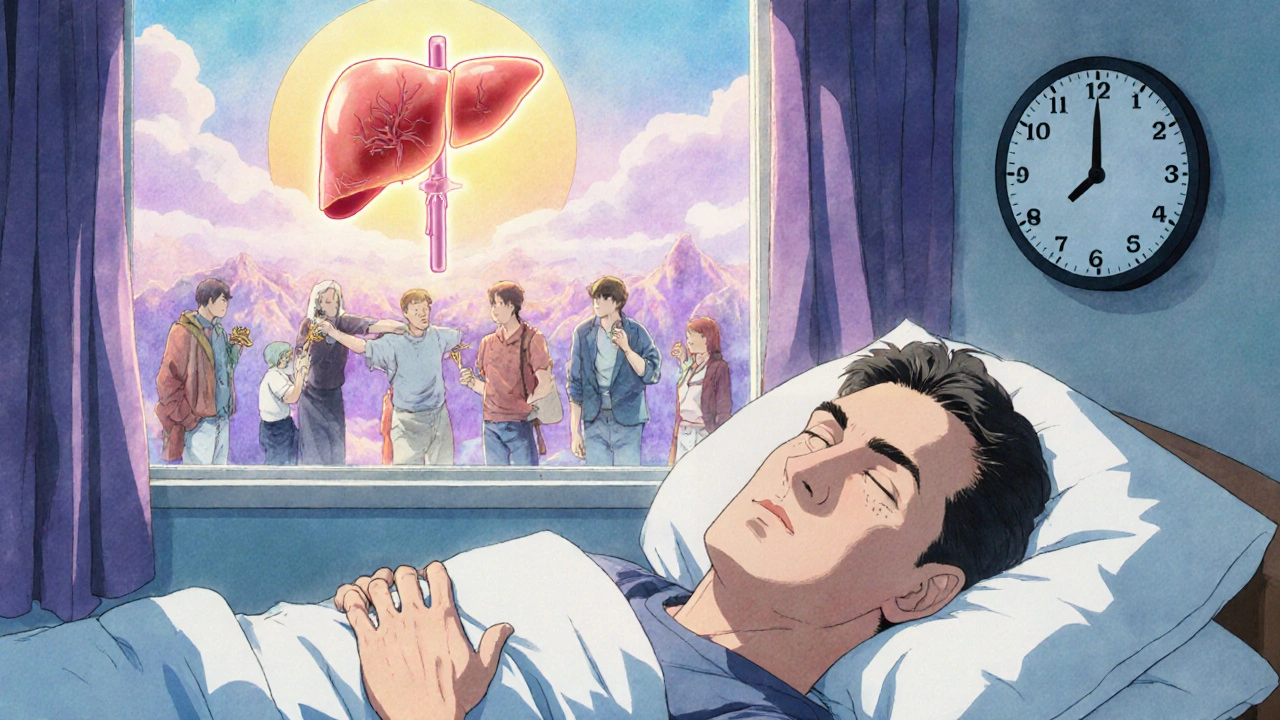
Why This Matters - Beyond Just Feeling Sick
Hepatitis A isn’t just about you. It’s about everyone around you. You can spread it before you know you’re sick. A single infected food worker can trigger an outbreak that affects hundreds.Each adult case costs the U.S. economy about $300 million a year - not because of medical bills, but because people miss work. On average, adults lose 15 workdays. That’s more than two weeks of income gone. Kids miss school. Parents miss work to care for them.
And here’s the good news: since the vaccine became routine for kids in 1995, hepatitis A cases in the U.S. have dropped by 95%. We’ve proven it’s preventable. We just need to keep vaccinating.
Frequently Asked Questions
Can you get hepatitis A more than once?
No. Once you recover from hepatitis A, your body builds lifelong immunity. You won’t get it again. That’s why the vaccine works - it tricks your body into thinking it’s been infected, so it builds the same protection without making you sick.
Is hepatitis A dangerous for pregnant women?
Hepatitis A doesn’t cause birth defects or harm the baby. But it can make pregnancy harder. Severe nausea, vomiting, and fatigue can lead to dehydration or poor nutrition. Pregnant women should avoid risky food and get the vaccine if they’re at risk. The vaccine is safe during pregnancy.
How do you know if you’re still contagious?
You’re most contagious before jaundice appears. Once jaundice shows up, you’re still shedding the virus in stool - but less so. Most people stop being infectious about a week after jaundice starts. If you’re unsure, your doctor can test your stool or liver enzymes. Public health guidelines say you can return to work or school one week after jaundice begins - as long as you wash your hands well.
Can you get hepatitis A from kissing or sharing utensils?
It’s unlikely, but possible. The virus is mainly in stool, not saliva. But if someone has poor hand hygiene and touches their mouth or food after using the bathroom, then shares a spoon or kisses you, transmission can happen. It’s rare, but not impossible. Handwashing is the key.
Why do some people relapse after feeling better?
It’s not a new infection. It’s your immune system still clearing the virus. The liver takes time to fully heal. After you feel better, your body might still be repairing cells. Stress, poor sleep, or overexertion can trigger a relapse - usually mild, lasting 7-14 days. Rest and avoid alcohol until your doctor confirms your liver enzymes are normal.
What Comes Next?
If you think you’ve been exposed - call your doctor or local health department. Get tested. Get the vaccine or immune globulin if it’s within 2 weeks.If you’re sick - rest. Hydrate. Avoid alcohol. Don’t go to work or school until you’re past the contagious phase. Wash your hands like your life depends on it - because it does.
If you’re healthy - get vaccinated. It’s one shot now, two shots total. It protects you. It protects your kids. It protects the people you work with, the food you eat, the travelers you might meet. Hepatitis A isn’t a death sentence. It’s a preventable illness. And we already know how to stop it.
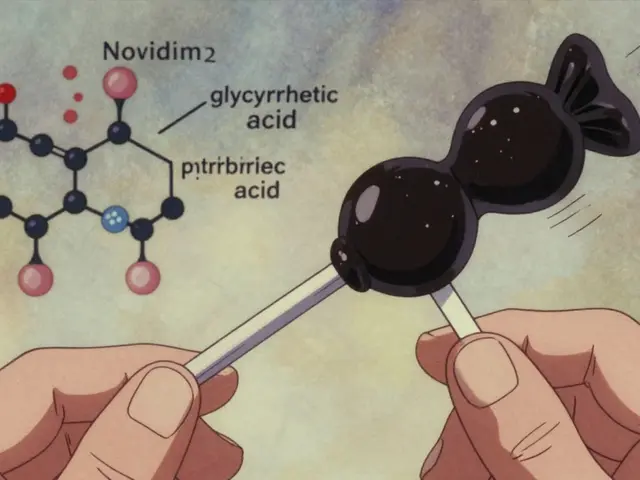
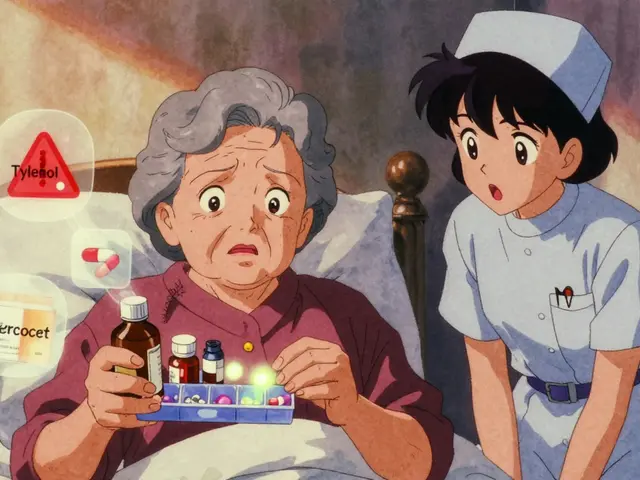

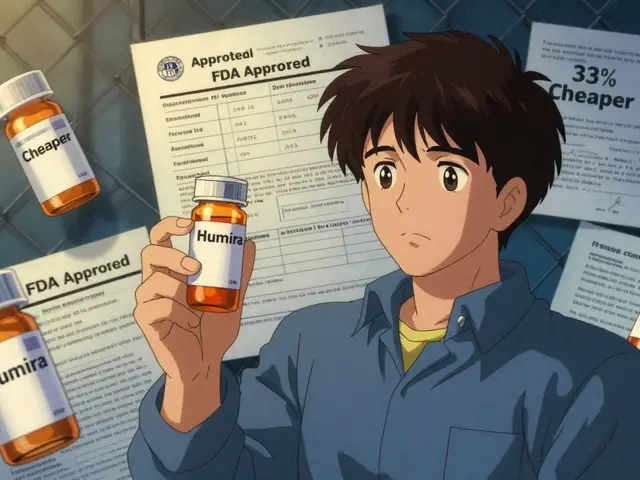
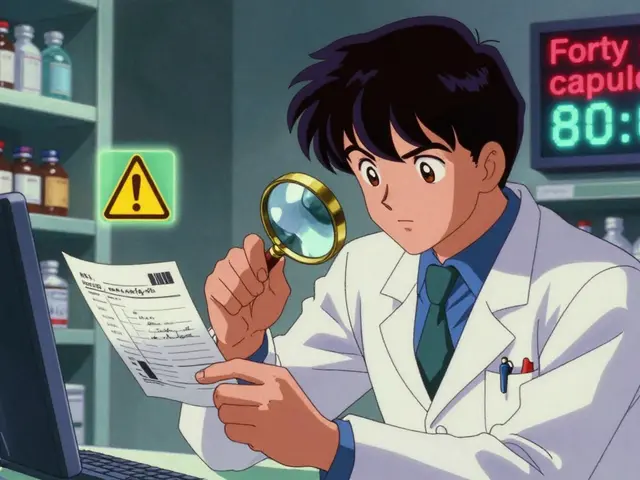
8 Comments
Stop telling people to wash their hands like it's magic. We've had vaccines for decades. If you're still getting Hep A in 2024, you're either lazy or dumb.
I got this last year. Felt like the flu but worse. Took months to stop being tired. Just rest. Drink water. No alcohol. That's it.
Wait, so you're saying the CDC recommends the vaccine for homeless people but not for rich tourists who eat at fancy sushi bars? That's not logic, that's classism. And why is it always about handwashing? What about the food industry? The real issue is corporate negligence, not personal hygiene.
Let me be perfectly clear: hepatitis A is not a "mild" illness. It is a systemic assault on your body's most vital organ. The liver does not forgive. The fatigue is not "lingering"-it is a biological shutdown. And to suggest that "one drink" is harmless? That is reckless, irresponsible, and statistically dangerous. The CDC does not say "wait until your doctor says"-it says "avoid all alcohol for at least six months"-and even then, monitor. You are not a statistic. You are a person with a liver that cannot regenerate if you abuse it again.
They're hiding the truth. Hep A is a bioweapon. The vaccine is in the water. That's why they want you to wash your hands-so you don't notice the fluoride and the microchips. Also, the FDA knows about the strawberries. They just don't care. They're making money off the fear.
I had this when I was backpacking in Mexico. I didn't know I was contagious until my friend got sick a week later. We both felt awful. But we got through it. I just want to say-be kind. People don't choose to get sick. And the vaccine? It's cheap. Get it. It's not about blame. It's about protecting each other.
It's not just about personal responsibility-it's about moral decay. We live in a society where people refuse to wash their hands because they're too busy scrolling on their phones. We've normalized filth. We've glorified convenience over cleanliness. And now we're surprised when children in daycare get sick? Of course they do. We've abandoned basic human dignity in favor of digital distraction. The virus isn't the enemy. Our collective apathy is. And until we stop treating health like a consumer choice and start treating it like a sacred duty, this will keep happening. To the parents who say "my kid's fine"-you're not protecting them. You're endangering everyone else. Shame on you.
While the epidemiological data on transmission vectors is well-documented, the practical implementation of hygiene protocols remains suboptimal in high-density urban environments. The efficacy of the two-dose vaccine regimen is empirically validated, yet uptake among at-risk cohorts remains below public health targets. A structural intervention-such as mandatory vaccination in food-service employment-would likely yield greater population-level impact than individual behavioral nudges alone.